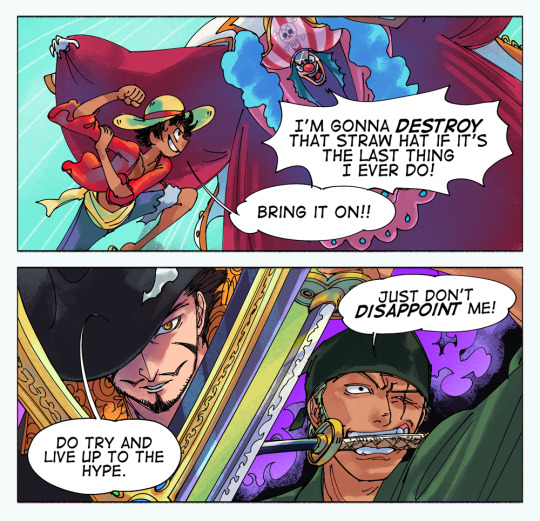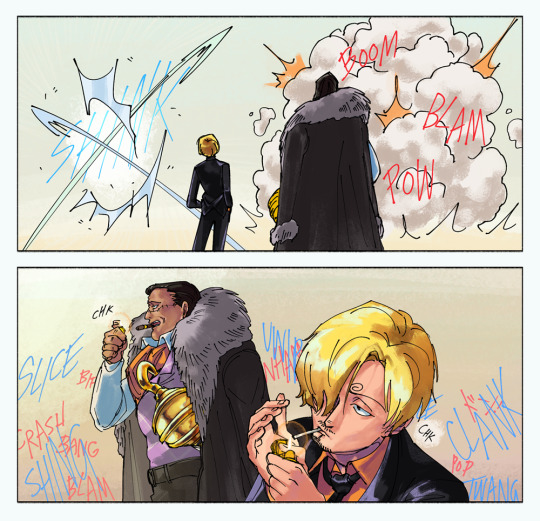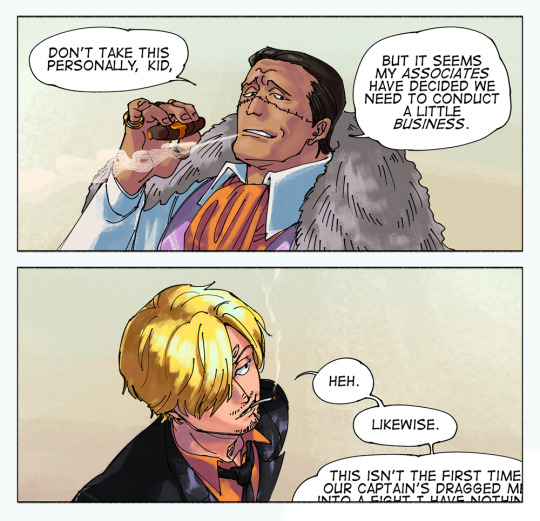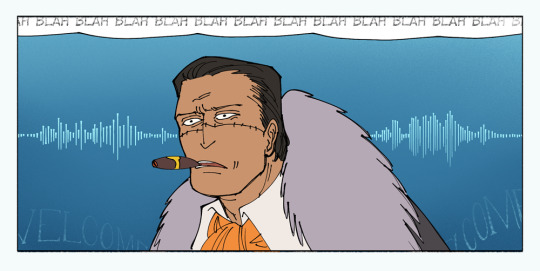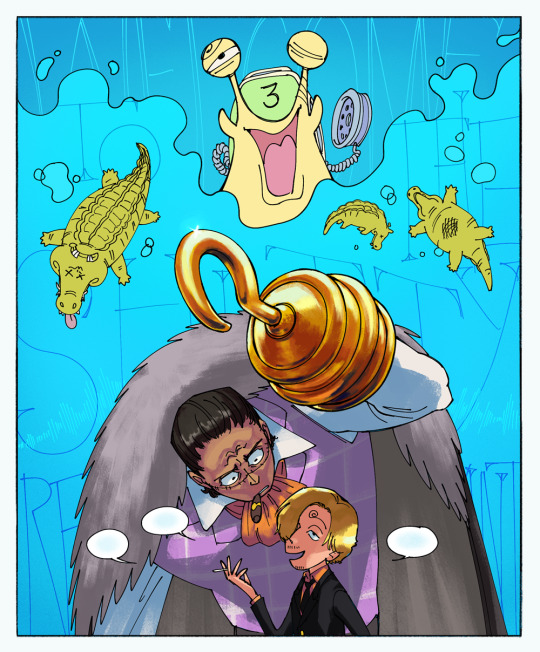Text
How do I describe a tired person? I got ‘dark circles under the eyes’ but it kind of stops there.
36K notes
·
View notes
Text




It's done! You can find the Absolutely Ripping It Up pack here.
Tear your artwork. Decay it. Blast a giant hole into it. Go nuts. Note that these are compatible only with Clip Studio!
here’s 200+ freebie brushes | and my brush tag is here ✨
32K notes
·
View notes
Text
Can't afford art school?
After seeing post like this 👇

And this gem 👇
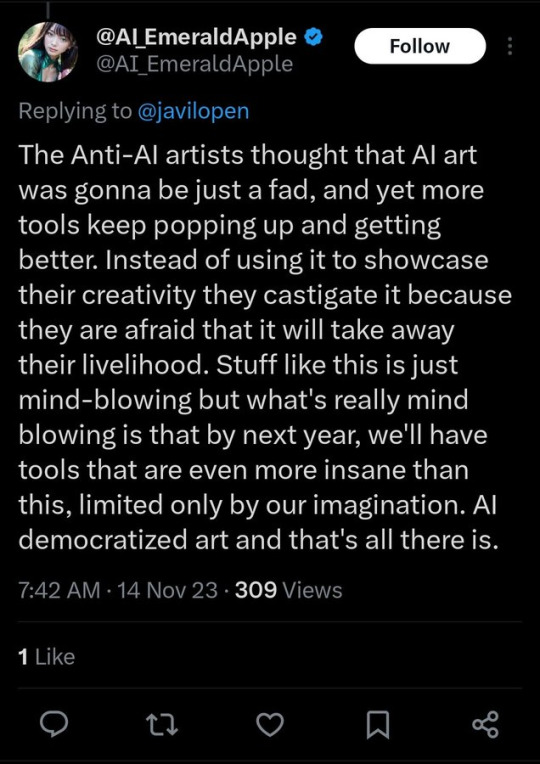
As well as countless of others from the AI generator community. Just talking about how "inaccessible art" is, I decided why not show how wrong these guys are while also helping anyone who actually wants to learn.
Here is the first one ART TEACHERS! There are plenty online and in places like youtube.
📺Here is my list:
Proko (Free, mostly teaches anatomy and how to draw people. But does have art talks and teaches the basics.)
Marc Brunet (Free but he does have other classes for a cheap price. Use to work for Blizzard and teaches you everything)
Aaron Rutten (free, tips about art, talks about art programs and the best products for digital art)
BoroCG (free, teaches a verity of art mediums from 3D modeling to digital painting. As well as some tips that can be used across styles)
Jesse J. Jones (free, talks about animating)
Jesus Conde (free, teaches digital painting and has classes in Spanish)
Mohammed Agbadi (free, he gives some advice in some videos and talks about art)
Ross Draws (free, he does have other classes for a good price. Mostly teaching character designs and simple backgrounds.)
SamDoesArts (free, gives good advice and critiques)
Drawfee Show (free, they do give some good advice and great inspiration)
The Art of Aaron Blaise ( useful tips for digital art and animation. Was an animator for Disney. Mostly nature art)
Bobby Chiu ( useful tips and interviews with artist who are in the industry or making a living as artist)
Sinix Design (has some tips on drawing people)
Winged canvas (art school for free on a verity of mediums)
Bob Ross (just a good time, learn how to paint, as well as how too relax when doing art. "there are no mistakes only happy accidents", this channel also provides tips from another artist)
Scott Christian Sava (Inspiration and provides tips and advice)
Pikat (art advice and critiques)
Drawbox (a suggested cheap online art school, made of a community of artist)
Skillshare (A cheap learning site that has art classes ranging from traditional to digital. As well as Animation and tutorials on art programs. All under one price, in the USA it's around $34 a month)
Human anatomy for artist (not a video or teacher but the site is full of awesome refs to practice and get better at anatomy)
Second part BOOKS, I have collected some books that have helped me and might help others.
📚Here is my list:
The "how to draw manga" series produced by Graphic-sha. These are for manga artist but they give great advice and information.
"Creating characters with personality" by Tom Bancroft. A great book that can help not just people who draw cartoons but also realistic ones. As it helps you with facial ques and how to make a character interesting.
"Albinus on anatomy" by Robert Beverly Hale and Terence Coyle. Great book to help someone learn basic anatomy.
"Artistic Anatomy" by Dr. Paul Richer and Robert Beverly Hale. A good book if you want to go further in-depth with anatomy.
"Directing the story" by Francis Glebas. A good book if you want to Story board or make comics.
"Animal Anatomy for Artists" by Eliot Goldfinger. A good book for if you want to draw animals or creatures.
"Constructive Anatomy: with almost 500 illustrations" by George B. Bridgman. A great book to help you block out shadows in your figures and see them in a more 3 diamantine way.
"Dynamic Anatomy: Revised and expand" by Burne Hogarth. A book that shows how to block out shapes and easily understand what you are looking out. When it comes to human subjects.
"An Atlas of animal anatomy for artist" by W. Ellenberger and H. Dittrich and H. Baum. This is another good one for people who want to draw animals or creatures.
Etherington Brothers, they make books and have a free blog with art tips.
📝As for Supplies, I recommend starting out cheap, buying Pencils and art paper at dollar tree or 5 below. If you want to go fancy Michaels is always a good place for traditional supplies. They also get in some good sales and discounts. For digital art, I recommend not starting with a screen art drawing tablet as they are usually more expensive.
For the Best art Tablet I recommend either Xp-pen, Bamboo or Huion. Some can range from about 40$ to the thousands.
💻As for art programs here is a list of Free to pay.
Clip Studio paint ( you can choose to pay once or sub and get updates. Galaxy, Windows, macOS, iPad, iPhone, Android, or Chromebook device. )
Procreate ( pay once for $9.99 usd, IPAD & IPHONE ONLY)
Blender (for 3D modules/sculpting, animation and more. Free)
PaintTool SAI (pay but has a 31 day free trail)
Krita (Free)
mypaint (free)
FireAlpaca (free)
Aseprite ($19.99 usd but has a free trail, for pixel art Windows & macOS)
Drawpile (free and for if you want to draw with others)
IbisPaint (free, phone app ONLY)
Medibang (free, IPAD, Android and PC)
NOTE: Some of these can work on almost any computer like Clip and Sai but others will require a bit stronger computer like Blender. Please check their sites for if your computer is compatible.
So do with this information as you will but as you can tell there are ways to learn how to become an artist, without breaking the bank. The only thing that might be stopping YOU from using any of these things, is YOU.
I have made time to learn to draw and many artist have too. Either in-between working two jobs or taking care of your family and a job or regular school and chores. YOU just have to take the time or use some time management, it really doesn't take long to practice for like an hour or less. YOU also don't have to do it every day, just once or three times a week is fine.
Hope this was helpful and have a great day.
"also apologies for any spelling or grammar errors, I have Dyslexia and it makes my brain go XP when it comes to speech or writing"
113K notes
·
View notes
Text

Analysis so bad you don't even know what it's talking about anymore.
59K notes
·
View notes
Text
I hate not switching my timer on before I study. Then only realising after I take a break.
#Having a stopwatch on while I study is kinda motivating#I tend to have trouble with estimating how much time has pass#So 5 min is like half an hour to me#But if I have a stopwatch that shows me only 5 min has passed#Then I'm like wowo#Let's do tahya again
0 notes
Text
why are british people always so mad when people make jokes about their accents. sorry you say yewchube. it’s funny though innit
109K notes
·
View notes
Text
Hello I can of want to enjoy life and academics again.
0 notes
Note
How exactly do you do a character study whether it be a film character or a book character?
Character development is the soul of story-telling. Compelling characters are what make or break a good narrative, which makes it one of the most important elements of any creative writing project. A fantastic way to get to the bottom of what makes a great character is by conducting a character study on characters you already know and love. So how, exactly, can you do that?
What is a character study?
A character study is a critical examination of a character in a work of literature, television, film, or other media, to understand their role and significance in the narrative. It involves delving into the character’s behaviours, motivations, relationships, and growth throughout the story.
Why should you do a character study?
Understanding Complexity: Characters are rarely black and white. Exploring what makes them tick can help you understand the nuances of character development and how to incorporate those complexities in your own characters.
Character Growth: Observing character growth can provide you with insights on how to develop and transform your characters over time.
Motivation and Conflict: A character study can help you understand the inner motivations and conflicts that drive characters’ actions and decisions.
How to conduct a character study?
Choose a character from that you admire or find interesting from you favourite book, tv show, film, or play.
Analyse the character’s traits by noting down their physical appearance, personality, emotions, and behaviours.
Examine the character’s relationships by looking at how they interact with others in the story. What do these relationships reveal about the character?
Look at the character’s growth and development by analysing their journey throughout the story. How have they changed or evolved?
Interpret the character’s motivations and conflicts. What drives them? What internal and external conflicts do they face?
Applying what you’ve learned to your writing
Write a character study for a variety of different characters, from protagonists, to love interests, and villains. What traits do you find most compelling, and do they have anything in common? Look at what relationships stood out to you, and how deep their motivations and conflicts are. Consider their growth and change, and use those learnings to develop your own characters. You can even start with a character development template to help organise your thoughts.
370 notes
·
View notes
Text
What is even the difference between an Elf and a High Elf?
13K notes
·
View notes
Text

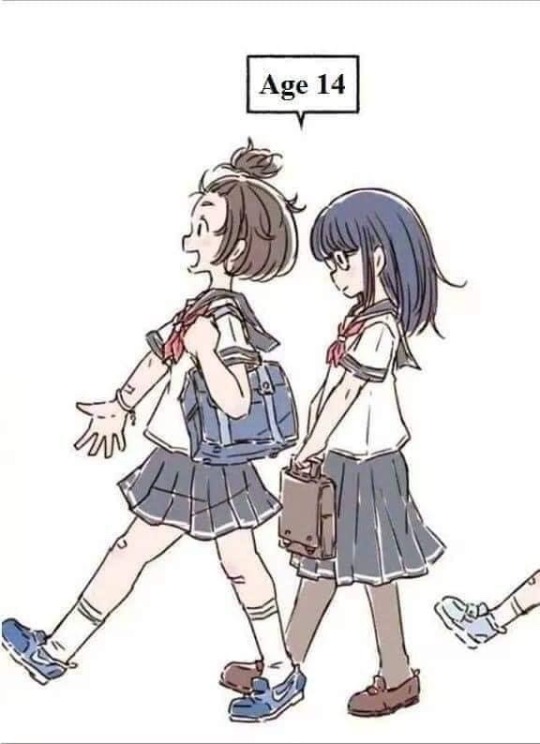



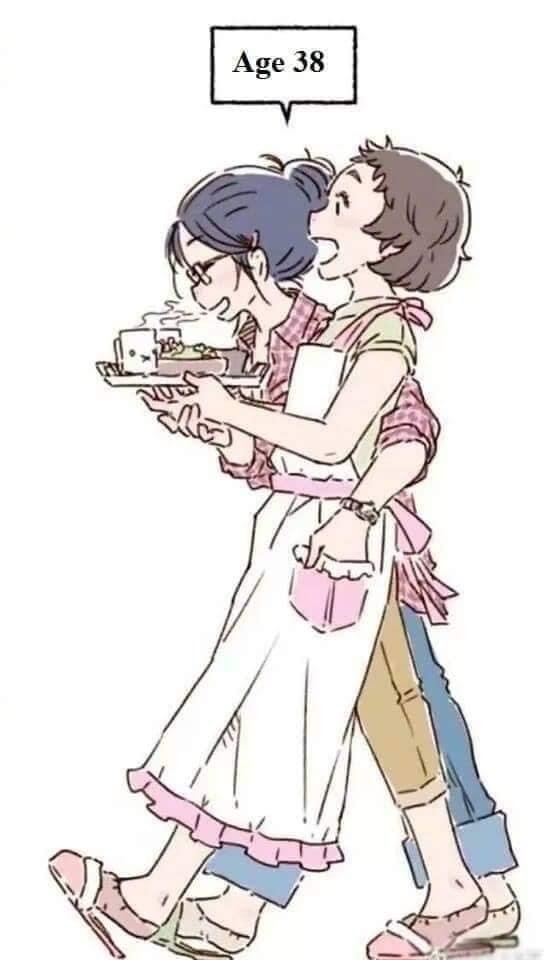
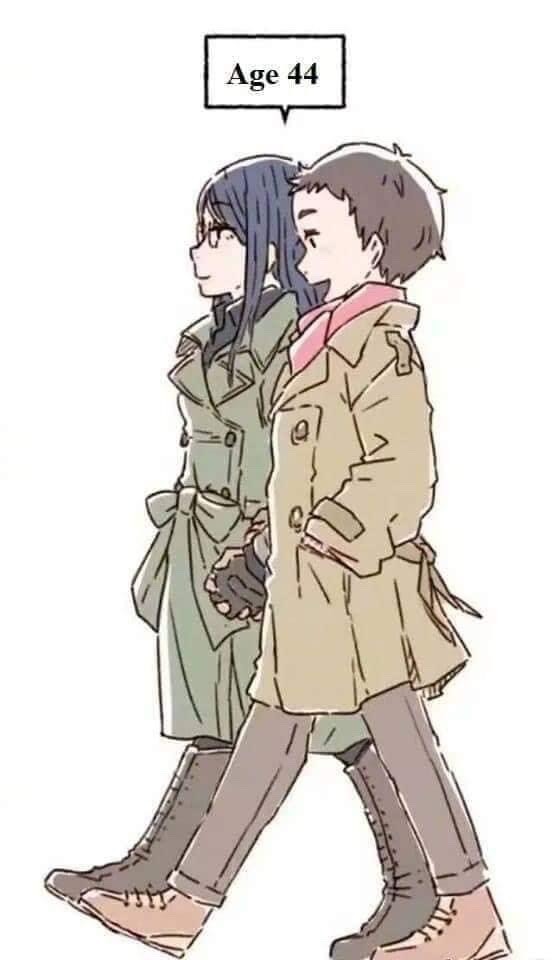

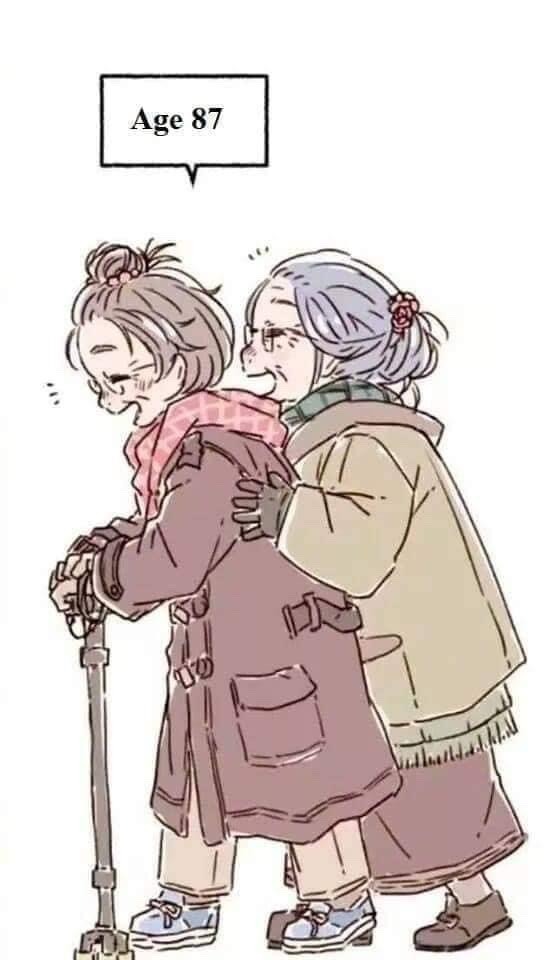
https://href.li/?https://www.pixiv.net/stacc/menkichi
103K notes
·
View notes
Text
Someone asked me (sorry your ask slipped away under a dogpile of others) for a list of things I use as resources. Outside of a seventy one (!!) page document that has a list of words, ideas for stories, examples of syntax, etc... I also use or have used these. These are not organized and range from thesauruses, resource lists, lectures, inspiration, interviews, etc. It's not exhaustive, I have more if anyone has interest.
The tried and true classic Jstor Writing with color lithub Eyes luminarium Brandon Sanderson / and again / and again / and again (basically all his byu lectures) r/writing em dash press the Paris review poetry archive Teeth licker (smut thesaurus) a conversation with Stephen King Myth bank the millions dear writers pantheon resource dump thewritersarchive resource masterlist Diversity style guide maxkirin Amy Tan Unsplash - (There is no need to request permission before using images that have the standard Unsplash license) writing Qs answered
762 notes
·
View notes
Note
Hey there! Sorry for clogging up your inbox, but may I ask if you could share any tips on how to come up with headcanons? I’m a small imagines-writer myself and I’m in a writers block cause I can’t come up with character headcanons ><. Thank you in advance!
Hi lovely, sorry it's taken me a little while to answer this! I have a few things I do that I hope will help you and anyone else out.

Find the facts you can build upon. Reread character profiles. Look for trivia on their wiki page, look at their TV Tropes page if they have one for aspects and interpretations you haven't thought of before and see if they spark any ideas.
Immerse yourself in the character a bit before writing. Scroll through fanart to immerse yourself in the character and how they look. Rewatch clips to listen to their voice.
Spotify and Youtube are treasure troves for character playlists that people have created. I'll usually put one of those on while I'm writing a lot about a particular character.
Go back and reread your own headcanons! Are there any ideas you only explored a little bit? Anything you can build upon in more detail?
If you feel like you can't pin anything down or all your ideas are floaitng around and too vague, get really granular—what does X eat for breakfast? Does X like their pillow soft, firm, or just dozens of them? What would X do if someone cut in front of them in line?
These really minor details about a person can tell you a lot, and can be surprisingly fun to write.
Sure, Ulquiorra's an stoic, emotionless Hollow, but how does he react when he encounters a burrito?
And really important, is to remember that you don't have to some perfect, nearly-canon interpretation of the character. They're your headcanons and people are coming to your blog to get your opinion, not for you to stick a straw in the author's brain and slurp out the extra details we didn't get in the OG work.
Don't worry about getting something "wrong". If people don't agree with your headcanons they can scroll on past to the next post.

I hope some of this helps!
33 notes
·
View notes
Note
Hi there :) I've been a long-time admirer of your work. It's respectable and frankly phenomenal how you're able to write so passionately and with such quality for so many different characters. I wanted to ask, how do you get into the heads of so many characters? Even, and especially, for the ones that aren't your favorites? I haven't written anything new for years and it's becoming overwhelmingly frustrating that I can't get out of my own head and into the heads of other characters unless they're my main or second main character.

Hello! Thank you so much! I've always tried to write for as many characters as I can in Bleach and other fandoms. It stops things from feeling stale and gives me a chance to flex different writing muscles.
Over time, you do develop a sense for how a character would behave according to most prompts...at least according to the fanon I've built up for them on my blog and in my own head.
When I first start trying to write a character, I'll do all the usual stuff like read their wiki profile, rewatch clips of the episodes they were in or whatever other media you can find them in. I tend to get caught up in little details and bits of trivia about characters, which I like to expand on in my writing about them.
Might not work for everyone, but let's say I'm writing headcanons about someone...I won't immediately go for the broadest scope. It's hard to try and encompass their whole character. Instead, I pick something really mundane about them. What do they eat for breakfast? How do they react to someone getting their name wrong? What are their hobbies? How do they like to dress?
And then I try to relate my thoughts about that to their wider personality, backstory, and other broader traits about them. I don't know if this makes any sense.
Let's use Jushiro as an example (and because I love him).
He likes growing bonsai trees, but they're all in bad condition. How come? He's a kindly caretaker, but his health probably stops him gardening a lot of the time. Perhaps they wilt and he tries to prune them back, or maybe his overzealous third seats try to do it for him while he's sick and they have no idea what they're doing. Or he could just be adorably bad at gardening.
His breakfasts are probably light and nutritious, because he's not a hugely indulgent individual, and because he needs proper food to maintain his body as best he can.
Etc.
I just feel like a narrower scope can give you the focus to explore a character without having to try and think about their whole existence at once? After a while, you get more of a feel for the character and it becomes a bit easier to stick them in different scenarios and see how they react.
This certainly won't work for everyone, but it's a low risk way to dip your toe into a different character's psyche. You're not trying to define their whole being, you're thinking about whether or not they had waffles this morning.
I hope this is useful in some way? I hope you have fun playing with different characters and don't put too much pressure on yourself to get it 'right'.

33 notes
·
View notes
Note
Lmao you’re an adult, you shouldn’t be using the word squick. Use trigger. Use your grown up adult words to explain how you feel instead of leaning on a cutesy uwu term that no one outside of tumblr uses. It’s embarrassing.
Idek if this is serious or ironic honestly
91K notes
·
View notes
Text
How fucking annoying is it when you feel so restless with creative energy but you can’t decide what to do with it and when you finally try to create something it comes out shit so you just give up and sit there being all creatively annoyed and jittery.
112K notes
·
View notes
Text
Literal definition of spyware:
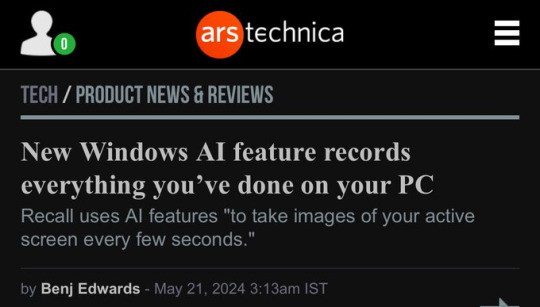
Also From Microsoft’s own FAQ: "Note that Recall does not perform content moderation. It will not hide information such as passwords or financial account numbers. 🤡
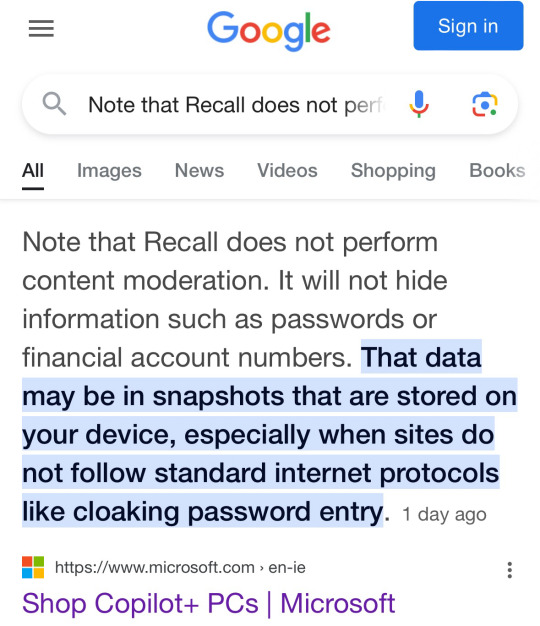
255K notes
·
View notes

